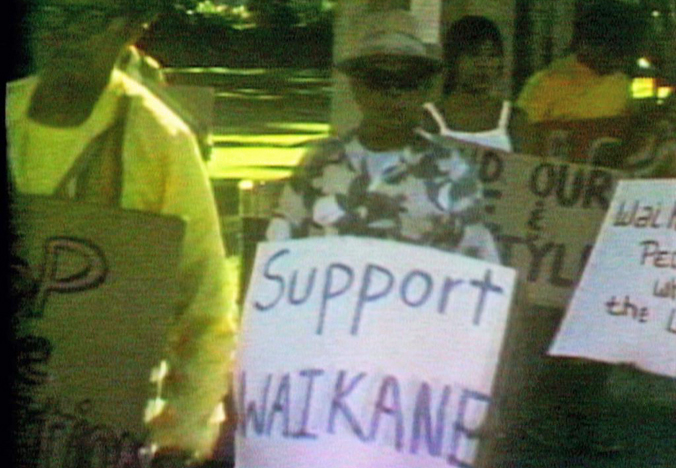
The ʻUluʻulu Archive at the University of Hawaiʻi–West Oʻahu explores how the early years of Native Hawaiian activism was documented with a screening of Documenting Activism: The Early Days of the Native Hawaiian Movement followed by a panel discussion with the filmmakers who helped capture the rise of the movement in the 1970s.
The event on Monday, November 6, 11 a.m–12:30 p.m. at the ʻUluʻulu Henry Kuʻualoha Giugni Moving Image Archive of Hawaiʻi in the James and Abigail Campbell Library is free and open to students, faculty, staff and the community
Documenting Activism film
ʻUluʻulu produced the 45-minute film to commemorate the first landing by activists on the island of Kahoʻolawe on January 4, 1976 to protest military use of the island for bombing practice.
Documenting Activism draws footage from Moʻolelo o ka ʻāina, a 1984 KITV production that was unique among commercial broadcasters at the time in attempting to address Native Hawaiian issues from the perspective of Hawaiians. To this ʻUluʻulu added raw footage from its Protect Kaho‘olawe ‘Ohana collection which highlights footage of activists preparing for the first voyage to Kahoʻolawe, as well as the initial landing on the island.
Panelists
The panelists were chosen because of their involvement in the Kahoʻolawe demonstrations as well as their continued contribution to films that illustrate the Native Hawaiian perspective.
- Stephen Kane-a-ʻi Morse—Founding director of the Hawaiian Coalition of Native Claims, now known as the Native Hawaiian Legal Corporation, Morse filmed the first occupation and captured the beginning moments of the Protect Kahoʻolawe ʻOhana.
- Kevin Coates—He helped document efforts to stop the bombing of Kahoʻolawe after the first landing and recorded moments that represent Protect Kahoʻolawe ʻOhana’s perseverance and illustrated the strength of the movement.
- Joan Lander—An independent filmmaker, Lander has been part of the documentary team Nā Maka o ka ʻĀina, which has produced more than 90 programs focusing on the land and people of Hawaiʻi and the Pacific.
- Matt Yamashita—A filmmaker from Molokaʻi whose work focuses on culture, activism and sustainability.
- Janel Quirante—As ʻUluʻulu head archivist, Quirante oversees the archive’s daily operations.
For more on the film and event, go to E Kamakani Hou.

